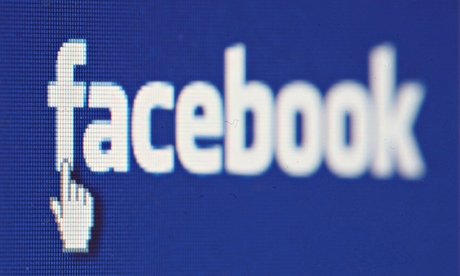Social media is getting a reputation as a troublemaker. The role of Twitter and Facebook in the Arab spring – though arguably overstated – was widely praised, at least in the west, and led to eager debate on the world such technologies were enabling. The role the same services were argued to have played in England's riots this summer was not treated with such jubilation. Social networks were fuelling the riots, politicians argued, and shutting down such services in the public interest should be seriously considered.
In reality, the role of Facebook and Twitter in fuelling August's riots was marginal at best: analysis of more than 2.5m tweets obtained by the Guardian found only a tiny fraction of users attempting to incite trouble – and even these were generally shouted down. Instead, the networks were used to mobilise clean-up operations and report on the trouble, with mainstream journalists frequently using Twitter to make up-to-the-minute reports which were on occasion themselves used by rioters.
Social media's role in the riots was largely confined to another network: BlackBerry Messenger. Rapidly portrayed as a faintly sinister untraceable, encrypted network, BBM is the social network of choice for many of Britain's teens – and through its ties to urban music, it is particularly popular in inner cities. BBM is cheaper than other networks, too.
A BlackBerry pay-as-you-go phone can be bought for around £110 – versus £400 plus for an iPhone – and for just £5 a month gives unlimited free messages to other BBM users. It was authorities' bad luck that the cheapest social network, and the one used by legions of disaffected youth, happened to be the hardest to trace, and the easiest to use to fuel unrest.
The lessons of the experience are several. The most obvious is that social networks are simply tools: when used for activities of which we approve – like riot cleanup, or the Arab spring – their power seems unambiguously positive. When used for other causes, it is portrayed as sinister. There's no way to embrace the immense good such tools can use without learning to live with, and mitigate, their downsides.
The second issue is less obvious. Coverage at the time often contrasted Twitter as the "good" social network used by upstanding citizens to mobilise cleanup operations with BBM, a secretive tool for rioters. BBM makes building social networks for otherwise alienated teens – who often cannot afford the top-ups required for texts, or computers/smartphones needed for Twitter – possible. More important, the difficulty the authorities encounter in intercepting BBMs make it an invaluable tool for activists in the Middle East and elsewhere in the developing world.
Arab spring participants were rightly wary of Twitter and Facebook, knowing – like UK rioters – their open platforms made them traceable by authorities. BlackBerry's tight security gave them a higher degree of safety. The wider consideration of BBM's role in the riots is not to assume that social media will automatically move us towards a more equal society. The easygoing nature of Twitter chats certainly makes us feel as if elites are opening up and accessing journalists and politicians is becoming ever easier. To an extent, this is undoubtedly true. But if the British elite is good at anything, it is networking, and Twitter is anything but a level playing field.
To take one example, established journalists, young and old, can network more easily than ever before, and their combined follower count and willingness to share each other's work can quickly drown out less established competition. More broadly, there are signs different classes of people – divided by age, income, or education – are shifting to different social networks. UK data collected by Xposure using Google Ad Planner suggests such a process has begun.
LinkedIn is the social network of the elites. Of its users, 38% have a bachelor's degree, and 44% say they earn more than £50,000 a year – though this is likely partly accounted for by a higher average age than other networks. This is substantially higher than Twitter, where 22% of users have a degree and 25% earn £50,000 or more. On Facebook, these numbers slip further still – 16% have a degree and 22% earn £50,000 or more. The user profiles of all three social networks suggest their denizens are younger, more educated, and earn more than the UK at large. Data is not collected for BBM – the network with the lowest cost of entry – due to its nature, but there are reasons to suppose its demographics would vary substantially.
Social media is just as capable of stratifying as every other part of society. If we want to use it to improve social mobility and close the divide between Britain's social classes, we cannot assume this will happen automatically – people have to make it so.










